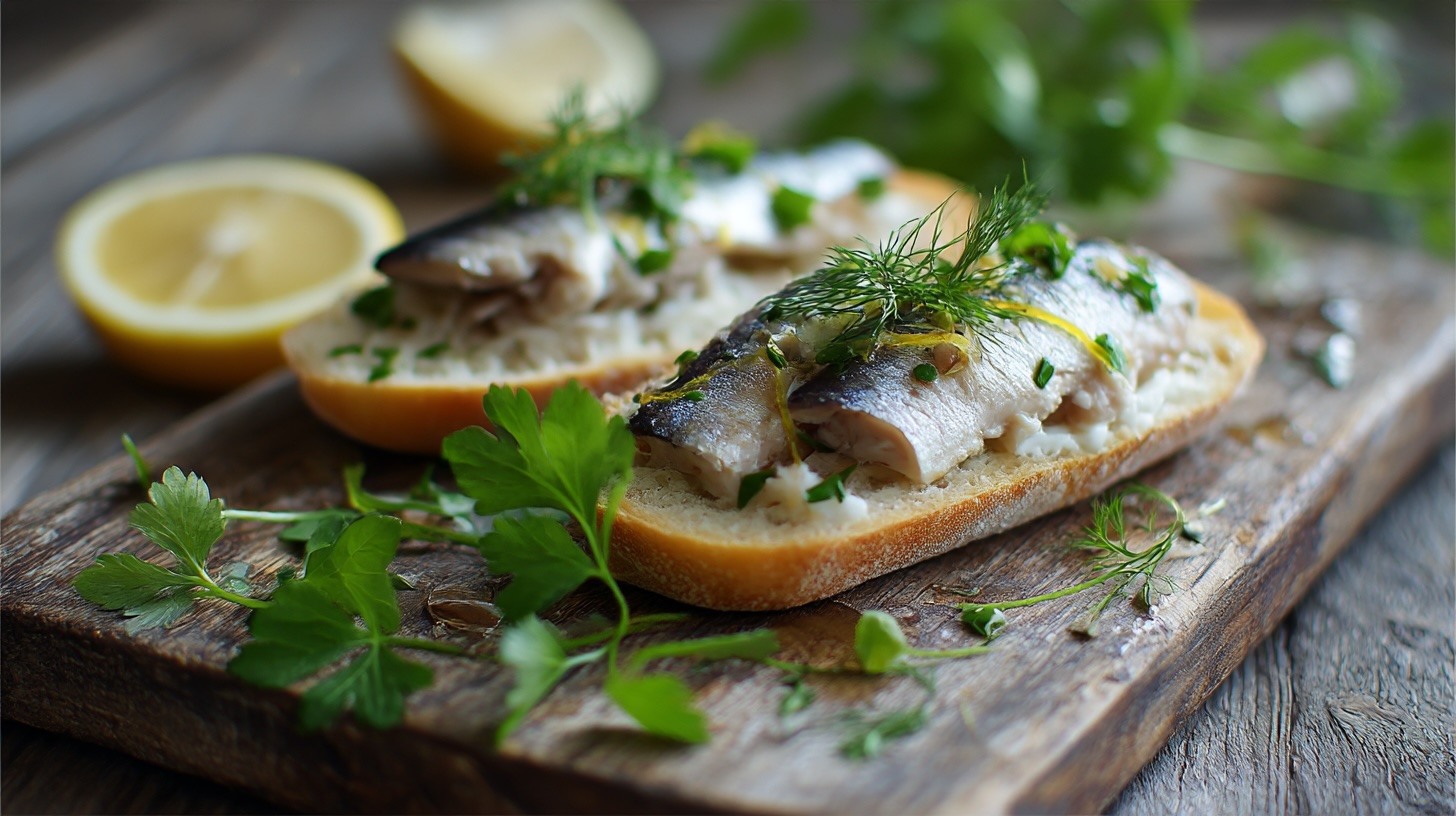Fischbrötchen: Northern Germany’s Briny Bite of Glory
The Fischbrötchen is not a sandwich. It’s a lifestyle. It’s the reason your train ride to Hamburg was worth the price of a soggy seat and three inexplicable delays. A Fischbrötchen is, quite simply, a Northern German love letter to the sea, scribbled hastily on a bun with herring ink and garnished with a generous slather of irony and onions.
Nobody is entirely sure who first decided to slap pickled fish into a crusty roll and call it lunch, but it probably involved a fisherman, a stubborn dock worker, and a beer-fuelled bet. What we do know is that by the late 19th century, Fischbrötchen had cemented their position in the hearts (and breath) of North Germans. Hamburg, Kiel, Lübeck, Bremerhaven — every salty port worth its fishnet had its own version. Think of it as the North Sea’s answer to the French baguette sandwich, but with fewer pretensions and more pickled onions.
There are regional varieties, naturally. The classic involves Bismarck herring – tangy, vinegary, unapologetically assertive. Matjes, the softer, oilier cousin of the herring, makes a creamier affair. Then there’s Brathering, fried and marinated, for those who like their fish with a side of crunch and historical trauma. Some versions include smoked mackerel, salmon, or even crab meat, but purists will squint at you with deep disappointment. You can zhuzh it up with remoulade, horseradish, lettuce, and cucumber, but the fish must always be the lead singer.
What makes it special? Well, few things so aggressively challenge the idea of what belongs in a sandwich. It doesn’t care about delicacy. The Fischbrötchen is brazen, bold, and entirely indifferent to your culinary expectations. It is eaten standing up, usually near a dock, ideally with wind slapping your face and seagulls eyeing your lunch like Dickensian pickpockets.
Pairing it with drinks? Beer, of course. Pilsner or a cold Helles. Something snappy and dry to slap the salt around your palate. White wine works, if you’re wearing sunglasses and pretending to be a lifestyle blogger. Avoid red wine unless you’re writing a novel about personal regret. And do not, under any circumstances, pair it with milk. You’re not an assassin.
Other foods to complement it? Fries if you must, but they’re redundant. Better to embrace the briny purity of the thing. A small cucumber salad or a crisp apple might offer a nice counterpoint. Or just double down and get two.
Health benefits? Omega-3s, obviously. That pickled fish is doing wonders for your arteries, your joints, and possibly your memory (if you can forget the smell on your hands afterwards). The bread offers carbs to keep you going, and onions fend off vampires and unwanted conversations. That said, salt levels are through the roof, so maybe don’t make it your daily breakfast.
Where to find the good ones? Hamburg’s Landungsbrücken is legendary, especially the unassuming stalls near the water. Lübeck’s Fischhäuser will fight you over who does it best. In Kiel, look for the stands near the ferry terminals. And in Bremerhaven, the fishery harbour hosts shrines to the art form.
Now, if you’re tragically landlocked but desperate to recreate the magic at home, here’s how to do it properly.
Fischbrötchen Recipe
Ingredients:
- 2 crusty rolls (German brötchen or similar)
- 2 Bismarck herring fillets (or Matjes, if you prefer a softer taste)
- 1 small red onion, finely sliced
- 2 tbsp German remoulade (or mix mayo with capers, mustard, herbs, and pickles)
- 2 slices of pickled cucumber
- Optional: lettuce, horseradish, or a squeeze of lemon
Cut the rolls in half. Smear remoulade on both sides. Lay down the herring like you mean it. Add onion, cucumber, and anything else your North German instincts permit. Press together with conviction. Eat immediately. Preferably on a windy balcony, while imagining the foghorn of a distant ship and the call of a seagull named Günther.
It’s not just a snack. It’s a mildly aggressive edible poem to a life shaped by tides, tradition, and a certain stubborn pride in smelling slightly of the harbour.



